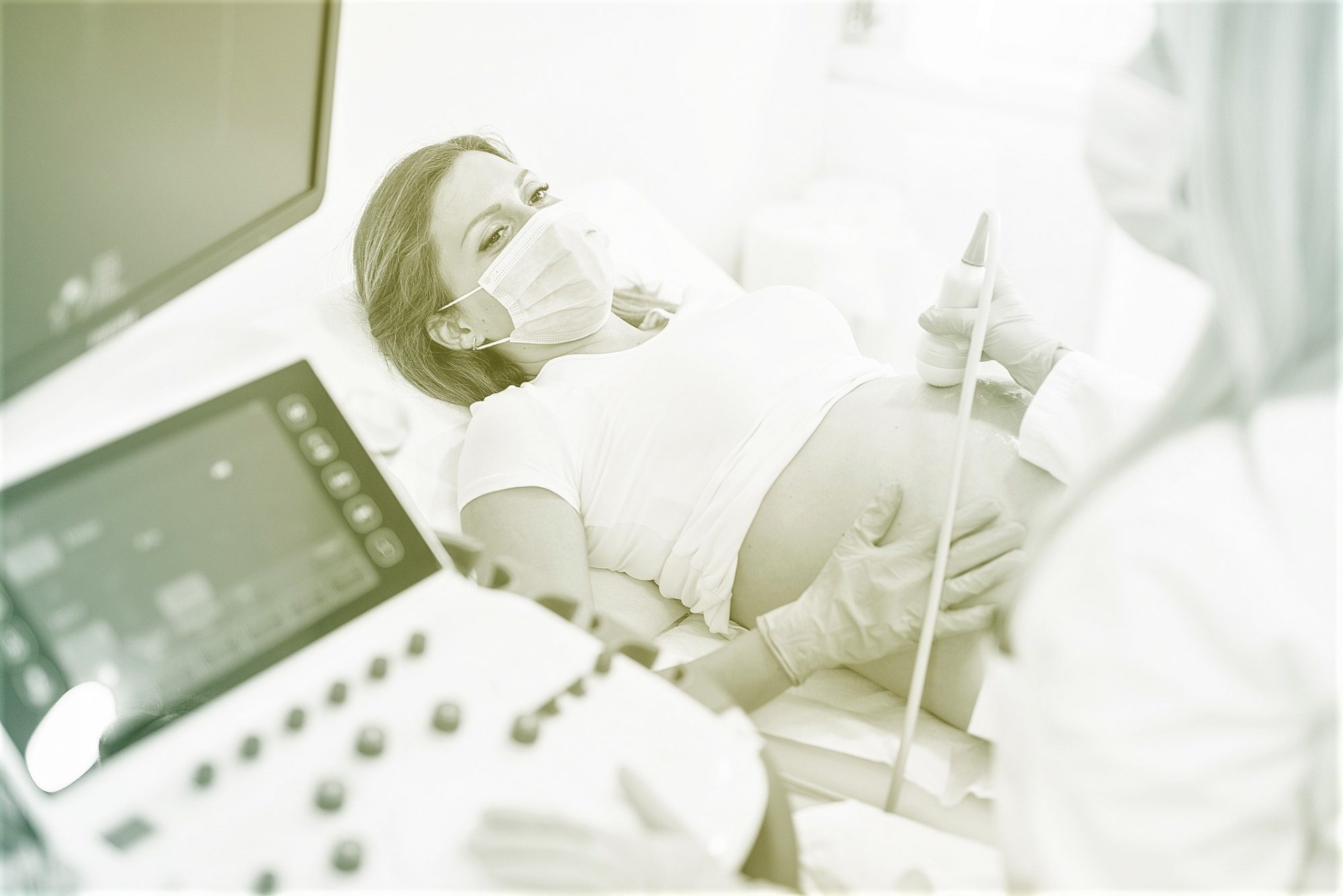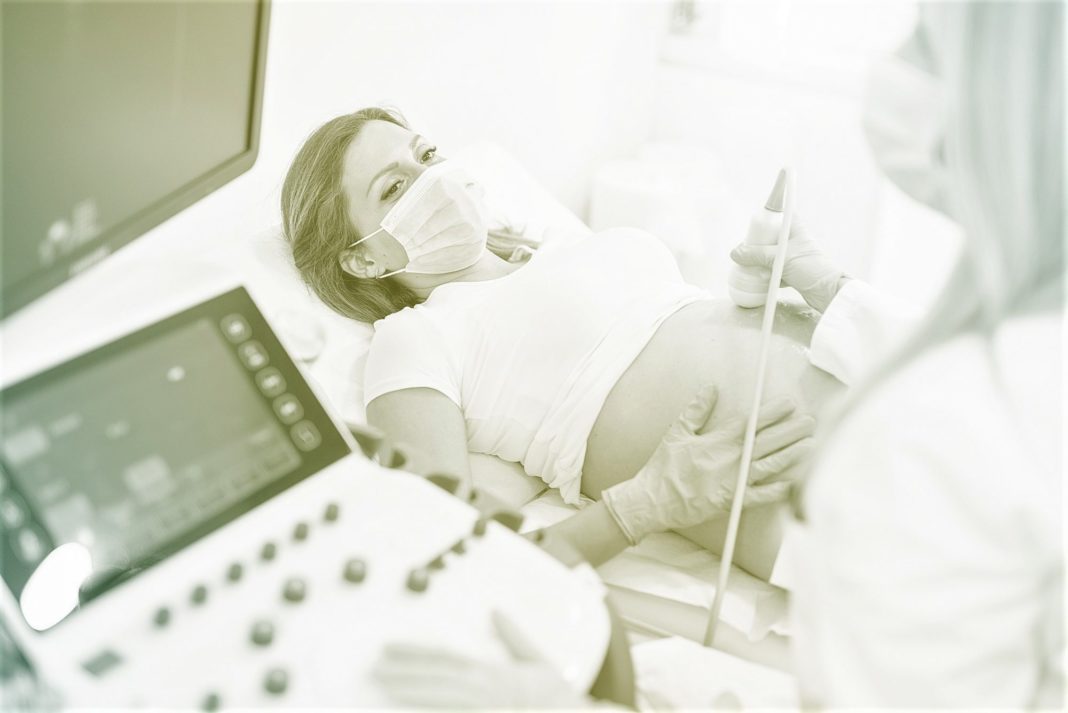Many pregnant people are particularly conscious about what they put in their body, which begs an important question during the pandemic: Should I get the COVID-19 vaccine? According to the Centers for Disease Control and Prevention (CDC), the answer is a resounding yes.
The organization recommends that everyone 5 years and older get vaccinated—"including people who are pregnant, breastfeeding, trying to get pregnant now, or might become pregnant in the future." In addition, pregnant people should "stay up to date with their COVID-19 vaccines, including getting a COVID-19 booster shot when it's time to get one."
Research has repeatedly shown that pregnant people are at an increased risk for severe illness from COVID-19 compared with non-pregnant folks of reproductive age. One review of several studies, published in March 2021, indicated that pregnant people were 62 percent more likely to be admitted to the intensive care unit (ICU) and 88 percent more likely to require the use of a ventilator. The CDC says that expectant parents who are symptomatic an increased risk of death from COVID-19.
"This is most likely a result of cardiovascular and respiratory changes that occur in pregnancy, which put pregnant people at higher risk of severe disease," says Marta Perez, M.D., a Parents advisor and assistant professor of obstetrics and gynecology at Washington University School of Medicine in St. Louis.
Studies have also linked COVID-19 infection to preterm birth in people with hypertension, diabetes, and/or those defined as clinically obese. "There is an increased risk for adverse pregnancy and neonatal outcomes, including preterm birth and admission of their neonate(s) to an ICU. Other adverse pregnancy outcomes, such as stillbirth, have been reported," says the CDC.
Getting vaccinating during pregnancy can help protect your baby, according to CDC data compiled from July 2021 to January 2022. Researchers discovered that if a parent receives two shots of Pfizer or Moderna during pregnancy, their baby has a 61 percent lower risk of COVID-19 hospitalization during their first 6 months of life. Similarly, a study published in JAMA in February 2022 found that the majority of babies (98 percent) had detectable COVID antibody levels two months after birth, if their mothers were vaccinated during pregnancy. At 6 months, 57 percent of infants had these antibodies.
Despite this information, only 40 percent of pregnant people were fully vaccinated "before or during their pregnancy" by January 2022, says the CDC. There are also vaccination coverage disparities based on race and ethnicity; for example, non-Hispanic Black pregnant people had a vaccine rate of only 15.6 percent as of September 2021.
Given the evolving information around the vaccines and virus, it's natural that expectant folks still have questions. Parents asked health experts to share the most up-to-date information on how the vaccine might affect those who are pregnant or who intend to be soon.

Can Pregnant People Get the COVID-19 Vaccine?
Yes, pregnant people can receive the COVID-19 vaccine. Currently, three options (Pfizer, Moderna, and Johnson & Johnson) have been granted authorization from the Food and Drug Administration (FDA), and anyone 5 and older is eligible to get vaccinated. All available vaccines have been shown to reduce the risk of severe illness, hospitalization, and death, the CDC says. That said, the organization recommends Pfizer or Moderna instead of Johnson & Johnson for pregnant people; that's because the latter has been associated with an increased risk of blood clots.
Besides the CDC, several other medical organizations strongly support COVID-19 vaccination during pregnancy, including the American College of Obstetricians and Gynecologists (ACOG), American Academy of Family Physicians, American Academy of Pediatrics, American College of Nurse-Midwives. "As the leading organizations representing experts in maternal care and public health professionals that advocate and educate about vaccination, we strongly urge all pregnant individuals—along with recently pregnant, planning to become pregnant, lactating and other eligible individuals—to be vaccinated against COVID-19," according to a joint statement from the organizations, released in August 2021.
Is the Vaccine Safe for Pregnant People and Babies?
Research is currently being conducted on pregnant and lactating individuals because they weren't originally included in any clinical trials. "Usually trials with [pregnant people] start later, after deemed safe in other groups," explains Purvi Parikh, M.D., an allergist and immunologist with the Allergy and Asthma Network and co-investigator on the vaccine trials.
That said, "we have very little concern that the COVID-19 vaccines could harm a pregnant person or their developing fetus," says Geeta Swamy, M.D., a member of the ACOG Immunization, Infectious Disease, and Public Health Preparedness Expert Work Group. Doctors indicate that this is true regardless of trimester.
After injection, the vaccine doesn't move much beyond the muscle cells and immune cells in lymph nodes, and it doesn't alter DNA, so it cannot cause genetic changes. In addition, "the vaccine doesn't contain live virus, so there's no risk of infecting the mom or baby with COVID," says Judette Louis, M.D., department chair of obstetrics and gynecology at the University of South Florida in Tampa.
There's also increasing evidence about the safety and effectiveness of COVID-19 vaccines. Take a study published in The New England Journal of Medicine in June 2021, which looked at nearly 4,000 pregnant people who got the Pfizer or Moderna shots. About 86 percent gave birth and most of the people were vaccinated during their third trimester. Among the babies, 9.4 percent were preterm births, and 3.2 percent had small gestational size—comparable to pre-pandemic figures. There were 221 pregnancy-related adverse events reported, and 46 of them were spontaneous abortions.
The CDC also cites research from it's v-safe COVID-19 Vaccine Pregnancy Registry. According to the organization, v-safe is "a new smartphone-based, after-vaccination health checker for people who receive COVID-19 vaccines." Data reported from 2,456 pregnant people in August 2021 concluded that the mRNA vaccines aren't associated with an increased risk of miscarriage.
Can Newborns Get the COVID-19 Vaccine?
As of now, the vaccines are approved only for people 5 and older. While pediatric trials are currently underway, vaccines for babies will probably be the last to be approved. Thankfully, COVID-19 infections in newborns are very uncommon, and severe illness appears to be rare.
The best way to protect your newborn against COVID-19 is getting vaccinated yourself, the CDC says. The vaccination allows your body to build antibodies to the coronavirus—and these antibodies can be passed to your baby during pregnancy, as evidenced in some studies. Also, "some types of antibodies cross into breast milk," says Dr. Perez, who got her own COVID-19 vaccine two weeks postpartum while nursing.
I Got the COVID-19 Vaccine—Now What?
No vaccine has an efficacy of 100 percent, and pregnant people should try limiting exposure as much as possible. "Make sure you are in the best health possible so that if you do get sick, your body and immune system is able to fight it," says Dr. Parikh. "This includes appropriate doctors visits, vitamins, getting other vaccines like the flu shot, and proper sleep and nutrition."
Another COVID-19 prevention method is creating a "bubble of protection" around expectant parents, suggests Lorene Temming, M.D., Medical Director of Labor and Delivery, maternal-fetal medicine specialist, and Director of the Medical Student Clerkship program at Atrium Health. This means that partners, family members, and other close contacts should be vaccinated, so if they're ever exposed to the coronavirus, they have a smaller chance of transmitting it to the expectant parent.
The Bottom Line
Several organizations—including CDC and ACOG—strongly recommend that pregnant people get vaccinated. Talk to your health care provider about any questions or uncertainties.

































